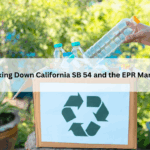Bisphenols are chemical compounds used for Manufacturing various plastics. They have been widely used in several consumer and industrial goods since more than six decades. Bisphenol A or BPA is the main member of this family and are commonly used as raw material in plastic and related industries including housings for electronic equipment like camera, TV bezels and many more also used as intermediates in several industries like printing.
One of the key intentions of this restriction is, Bisphenols are identified as harmful to reproductive system of humans and animals.
In coordination with EU Member States, ECHA has evaluated more than 100 bisphenols on their impact on human health and the environment through a variety of exposure limits. ECHA experts have listed the following advantages of group assessment over individual assessment of chemicals:
- It is imperative to avoid regrettable substitutions.
- The holistic approach saves time by using data on one substance in a group of similar substances.
- A Consistent regulatory action across all the substances in a group
Of the 100+ Bisphenols evaluated, 34 were found to be harmful to humans and the environment, and 26 were found to be non-toxic. In addition, 22 Bisphenols are considered non-conclusive due to the lack of data, and 60 Bisphenols are not to be studied since they are either not registered or registered with less than 10 tons per year, and the remaining are still being evaluated for toxicity. Three Bisphenols have already been added to the SVHC list (Bisphenol A, Bisphenol B, and 2,2-bis(4′-hydroxyphenyl)-4-methylpentane).
In October 2022, Germany will submit a proposal to restrict Bisphenols with endocrine disrupting properties, since the consultation period ended on 20th June 2022. Also ECHA has these in its restriction plan.
Do you want to know detailed implications on your business and how overcome? Talk to an environmental compliance expert at ComplianceXL, today!





